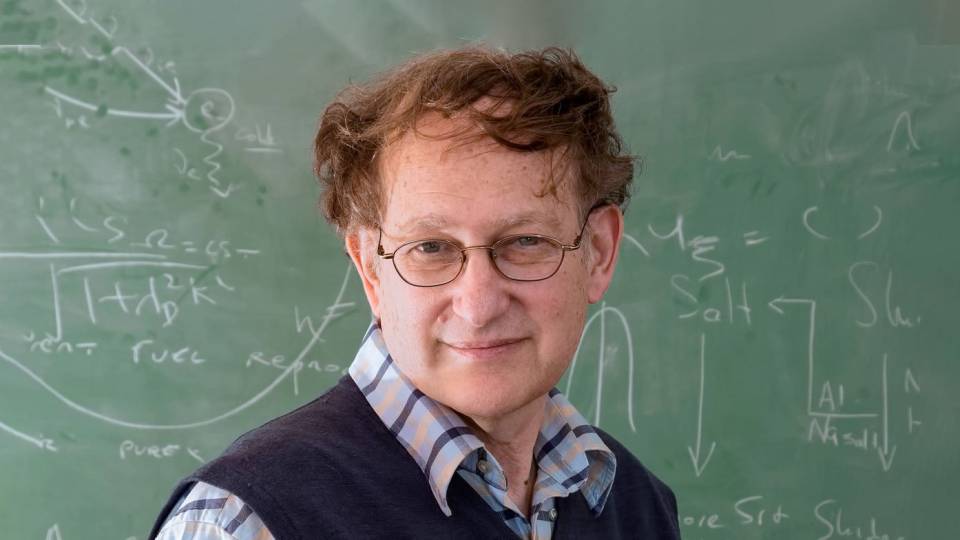Thomas Howard Stix, professor emeritus in astrophysical sciences, died Monday of leukemia at the age of 76. He was one of the most original thinkers and leading developers in the field of plasma physics.
Professor Stix will be remembered not only for his work as an outstanding scientist, educator, innovator and inventor, but also for his warmth, humor and genuine concern for people.
Born July 12, 1924 in St. Louis, he served in the U.S. Army from 1942 to 1945. After receiving his bachelor of science degree from the California Institute of Technology in 1948 and his Ph.D. from Princeton in 1953, he joined Project Matterhorn, then a small, classified project on Princeton’s Forrestal campus. The project aimed to harness fusion energy for peacetime use.
Project Matterhorn grew quickly, and, in 1961, when Professor Stix headed the experimental division, its name was changed to the Princeton Plasma Physics Laboratory.
Professor Stix’s work revolutionized research in plasma physics by showing how waves could heat plasma. This early work was presented at the Second International Atoms for Peace Conference in Geneva in 1958, held soon after the major nations working on controlled thermonuclear fusion research agreed to declassify their work.
In 1962, Professor Stix published his classic text, “The Theory of Plasma Waves.” The same year, he was appointed professor of astrophysical sciences at Princeton University. Enormously influential, his textbook explored and formalized the growing subject of waves in plasma, both for laboratory and astrophysical applications. The book educated several generations of plasma physicists.
Professor Stix showed how microwaves, injected from antennas or waveguides, could heat plasma to thermonuclear temperatures -- or tens of millions of degrees Fahrenheit, while confining it within powerful magnetic fields.
Among his inventions is a structure in which sections of coil were alternately wound around the device clockwise and counter clockwise. Later known as a Stix coil, this structure coupled radio frequency waves at ion cyclotron frequencies into the plasma. Professor Stix also contributed importantly to the theory of stochastic and chaotic behavior of particles and magnetic fields in plasmas.
Professor Stix received a Guggenheim Fellowship in 1969 and the James Clerk Maxwell Prize, the American Physical Society’s highest award in the field of plasma physics, in 1980. This award recognized his pioneering role in developing and formalizing the theory of wave propagation and wave heating in plasmas. In 1999, he received the Lifetime Achievement Award by Fusion Power Associates.
In 1991, Princeton University recognized his contributions as a teacher and educator in its awarding him its first “University Award for Distinguished Teaching.”
Among his professional responsibilities, he was elected chair of the division of plasma physics of the American Physical Society in 1962. In 1978, Professor Stix was appointed associate director for academic affairs at PPPL, and was director of the Program in Plasma Physics at Princeton University for many years. He spent three sabbaticals at the Weizmann Institute of Science in Israel.
Professor Stix also embraced civic responsibility. As a member and chairman of the American Physical Society Committee on International Freedom of Scientists, he worked tirelessly on behalf of human rights and the political freedom of scientists worldwide. He also served on the American Physical Society panel on public affairs.
He chaired the Princeton United Jewish Appeal in 1954-55, and again in 1963-64. He served as chairman of the Princeton Hillel Foundation from 1972 to 1976 and as acting director of the newly founded Princeton University Center for Jewish Life in 1994. He was on the board of the Princeton chapter of the American Jewish Committee and on the advisory board of the Princeton Senior Resource Committee.
In 1950, he married Hazel Sherwin. Longtime residents of Princeton, he and Hazel raised two children, Susan Sherwin Fisher of New York and Dr. Michael Sherwin Stix of Lexington, Mass. In addition to his wife, children and four grandchildren, he is survived by his brother Ernest Stix, a sculptor in St. Louis, Mo.; and his brother, John Stix of New York, a stage director and long-time faculty member of the Juilliard School.
Professor Stix was also known for his love of life. He and Hazel enjoyed traveling worldwide. He enjoyed windsurfing, swimming, and snorkeling well into his seventies. He was also an avid skier, skiing with his children and grandchildren at Alta and Snowbird, Utah. A devoted grandfather, he learned last year to scooter with his two grandsons around Central Park.
A memorial service will be held at the Jewish Center of Princeton on Monday, April 23 at 10:30 a.m. The family will receive visitors at their home 1-4 p.m. and 7-9 p.m. Monday through Thursday. In lieu of flowers, the family requests that donations be made to the Princeton Senior Resource Center, the New Israel Fund or the American Jewish Committee.
Contact: Marilyn Marks (609) 258-3601
